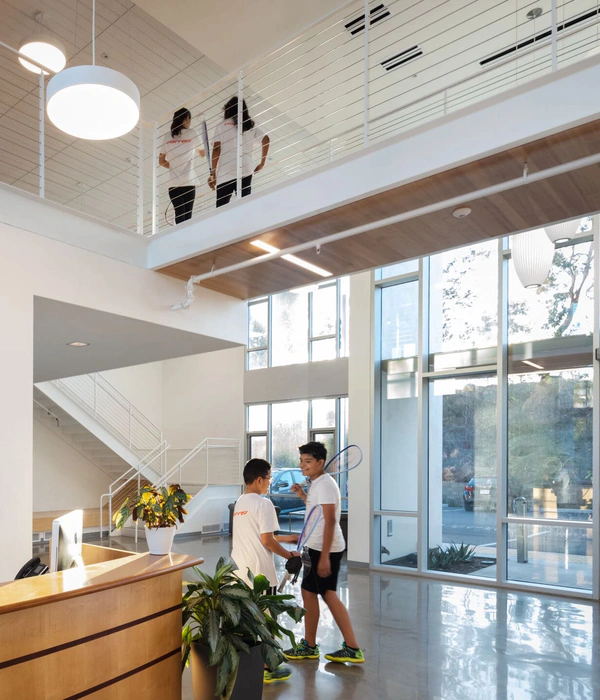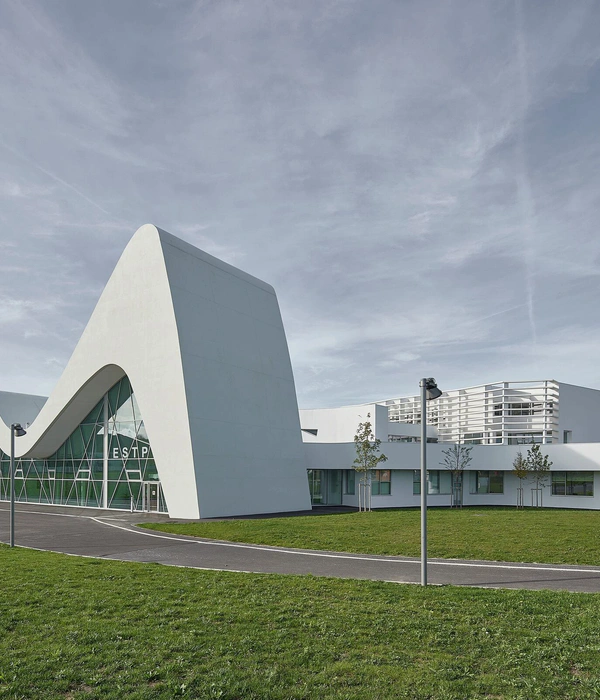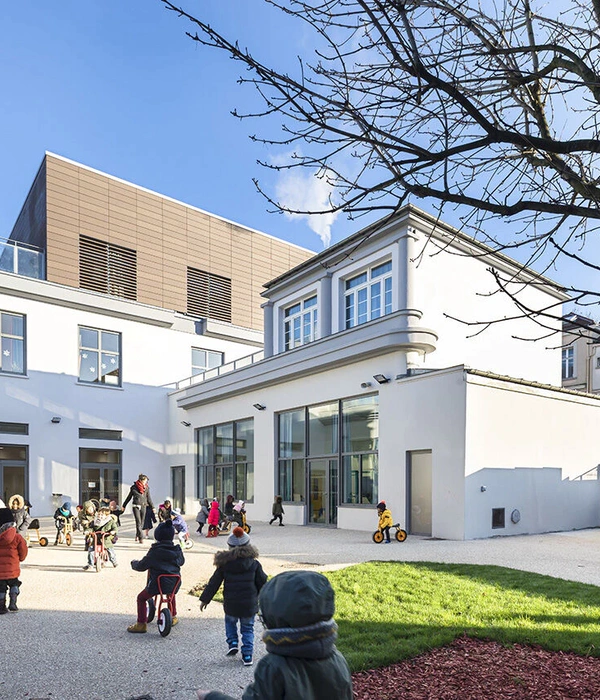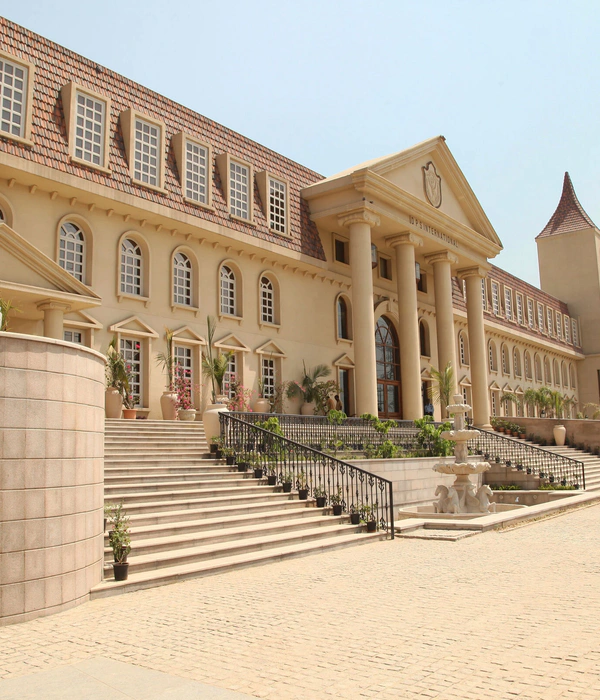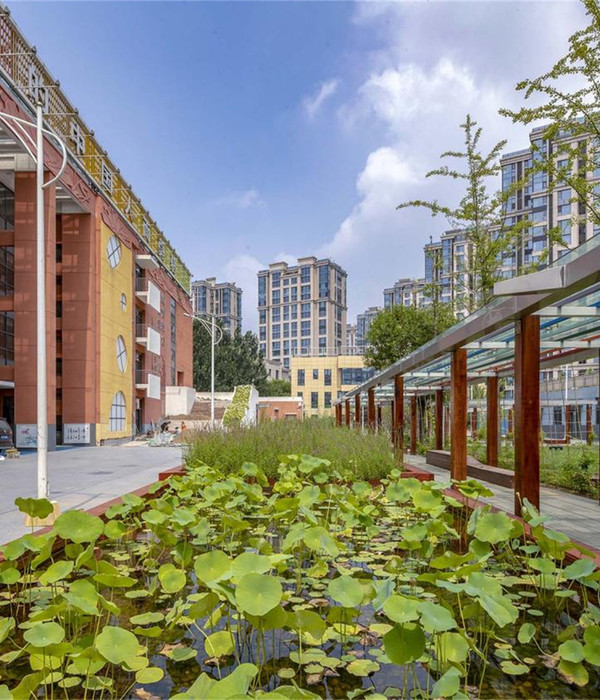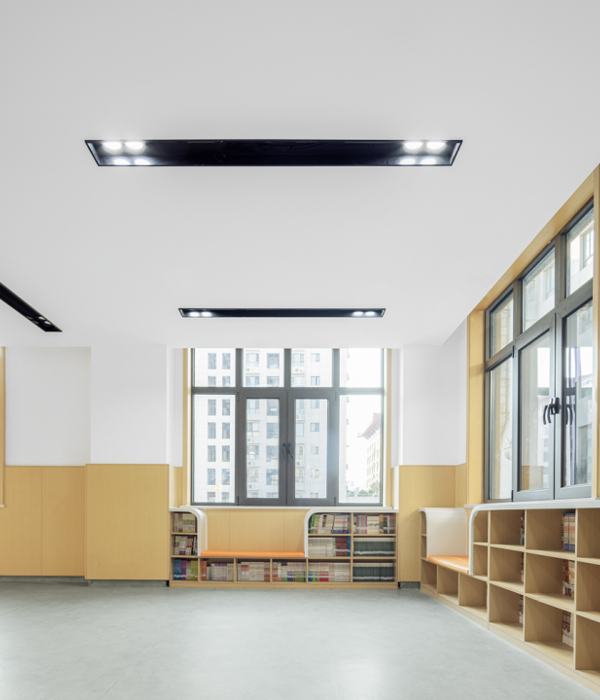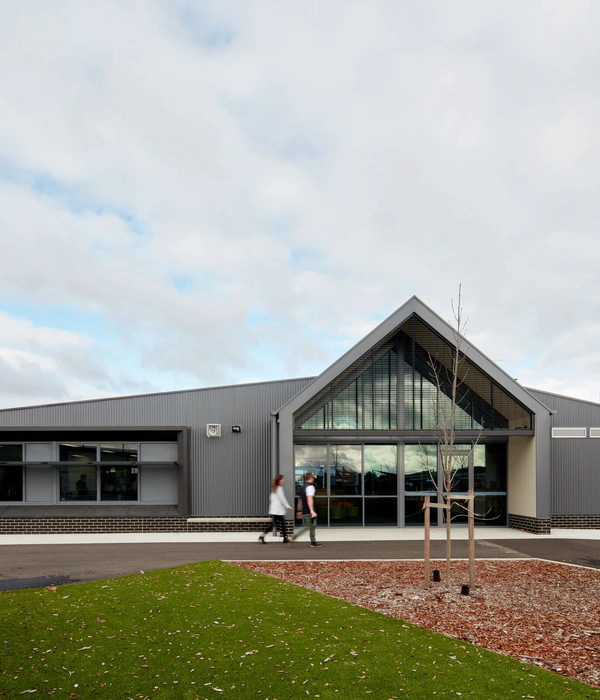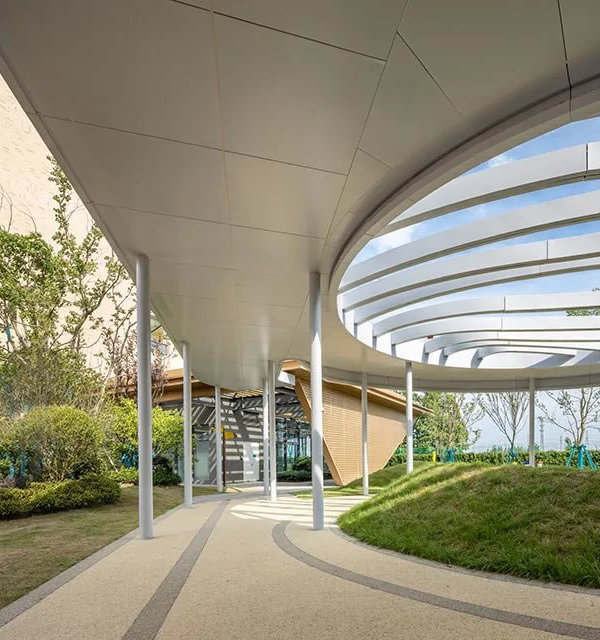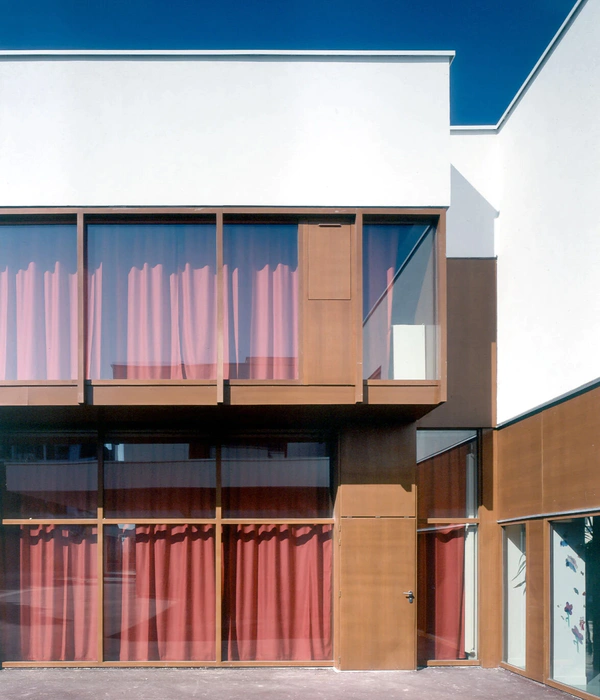Proudhon secondary school was built in 1971. It is located in the Palente district, to the north of Besançon. It is surrounded by the Pergaud sixth form secondary school and the Orchamps gymnasium. The original architecture is typical of the mass urbanisation of the 1960s and the policy of standardisation, two phenomena which forged the “ordinary” heritage of the 20th century. The Tectoniques architectural firm in collaboration with Architectures Adelfo Scaranello won the competition to restructure and extend the facility. The school had to remain open throughout the duration of the building works.
The project was therefore broken down into phases in order to continue to accommodate pupils and staff throughout the construction and renovation work. After three years of work, a unifying, holistic project was delivered. The only teaching block of classrooms that was preserved also happens to be the largest and forms the focal point for the whole programme. The new secondary school benefits from a more compact programme which offers gains in terms of quality of use and heating conservation.
It develops around a large gallery which spans the whole facility and organises the distribution. The south-facing urban facade overlooks the Palente district, whilst to the north there is a more contemplative opening across the expansive landscape of the Chailluz forest. The architectural style for the Proudhon secondary school is deliberately sober and unifying. The intention was to move away from the principle of compiling different objects which so often underpins this type of project. The only exception is the contrast drawn between the new building and the renovated building. The first forms a black, slightly metallic body, whilst the second is a white, matte block.
Tectonic forces
The extension continues on from the renovated building, along the same lines, thus creating a coherent, balanced volume. The mass and height of the teaching block, sandwiched in the middle, dominate the composition. It is a point of anchorage, a fulcrum at the centre of the project.
The contrasts in texture between the dark and shiny finish of the new building, and the white and matte finish of the old building, clearly reflect the history and nature of the structures. The original prefabricated concrete building has been externally insulated using polystyrene foam and fitted with PVC window frames and shutters, finished with a synthetic coating. The new building is made of wood with a high performance insulated shell, aluminium window frames and mobile sunshades, with a wood fibre and thermo-setting resin finish. Despite the opposing tectonics of the two blocks, their co-existence is balanced and peaceful.
Construction principles
Concrete core-walls provide overall stability and act as firewalls for the at-risk areas. The project expands out from these solid anchors with a wooden structure built using a beam-column system. The beams run up to 1.15 metres to manage the long spans and overhangs. Seismic design regulations were modified during the study and design phase of the project. The structure was therefore adapted with significant changes made in terms of sizing and jointing. All the new buildings are built using a 2.10 metre framework and multiples thereof.
This framework is used for all the structures. It is visible on both the interior and exterior of the facade, on the ceilings, and vertically on the internal structures which are also left on display. This system creates a repetitive, regular pattern that is characteristic of wood structures composed of a gigantic set of prefabricated parts. The layout of the facades and exterior cladding reflect the composite nature of this construction material. To the south-east, a deep overhang works with the vertical sunshades to provide additional protection and regulate the amount of sunlight entering the building. To the north- west the overhang is less pronounced, but the sunshades are larger to protect the space from the sunlight at the end of the day. The sun protection systems are composed of rock fibre panels (Rockpanel).
{{item.text_origin}}

